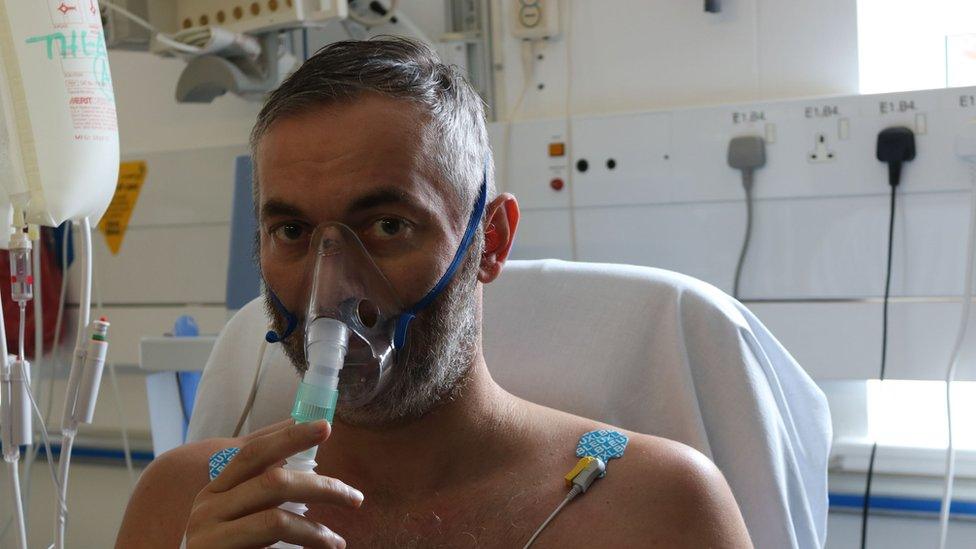Diver adapts scuba technology to help patients with Covid-19
- Published
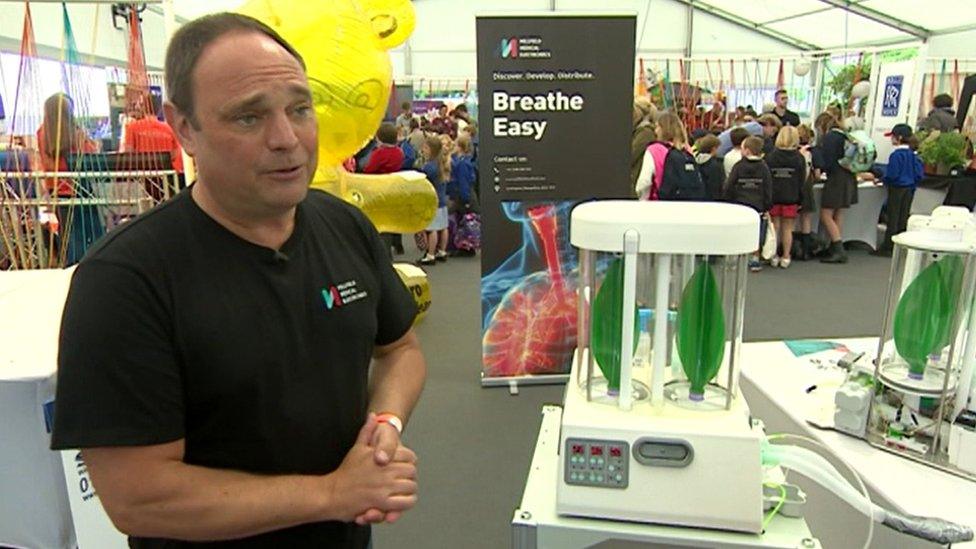
Martin Stanton's ventilator uses oxygen the patient has breathed out
The NHS has ordered 1,000 machines from a Somerset designer who adapted scuba technology to help patients with Covid.
Martin Stanton said he initially wanted to find ways of making the air in scuba tanks last longer for his dives.
When he learned hospitals had a shortage of ventilators during the pandemic, he set about designing a more efficient machine for patients.
His scuba-inspired invention recycles oxygen the patient breathes out and is highly portable.
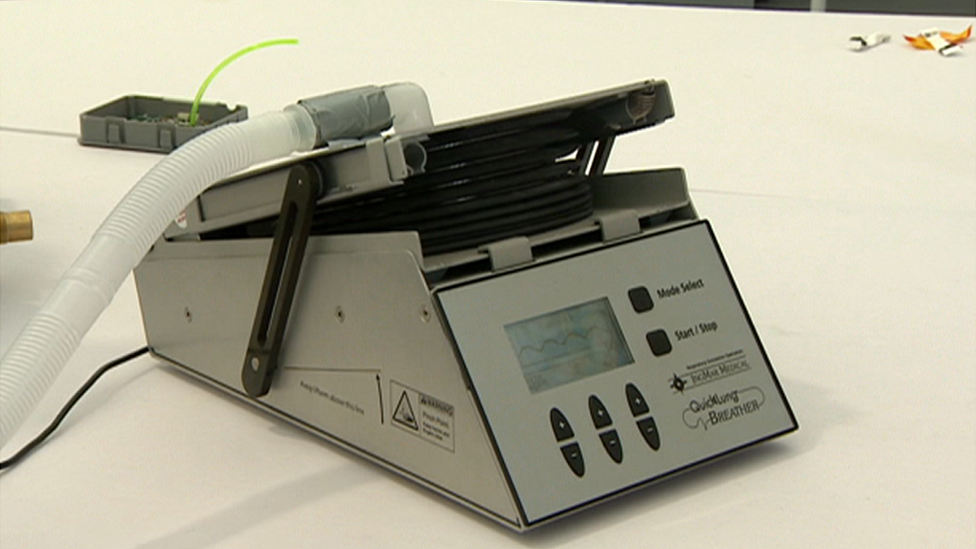
He exhibited the machine at the Cheltenham Science Festival
Ventilators were a key piece of equipment at the height of the pandemic.
By putting air into patients' lungs, they provide the body with much-needed oxygen for those who cannot breathe without assistance.
Mr Stanton, 50, from Temple Cloud, runs a diving company and said his machine safely re-uses oxygen the patient breathes out which increases the efficiency of the ventilator.
"I started working on that problem - which is why are the clinicians and doctors saying we've not got enough oxygen when the masses say we should?"
As the body only uses five per cent of the oxygen we breathe in, Martin's machine recycles the excess air into a bag that is made ready to reuse.
To remove the carbon dioxide (CO2) created as a by-product of breathing out, a soda lime canister, a popularly-used CO2 absorbent, is attached to the machine.
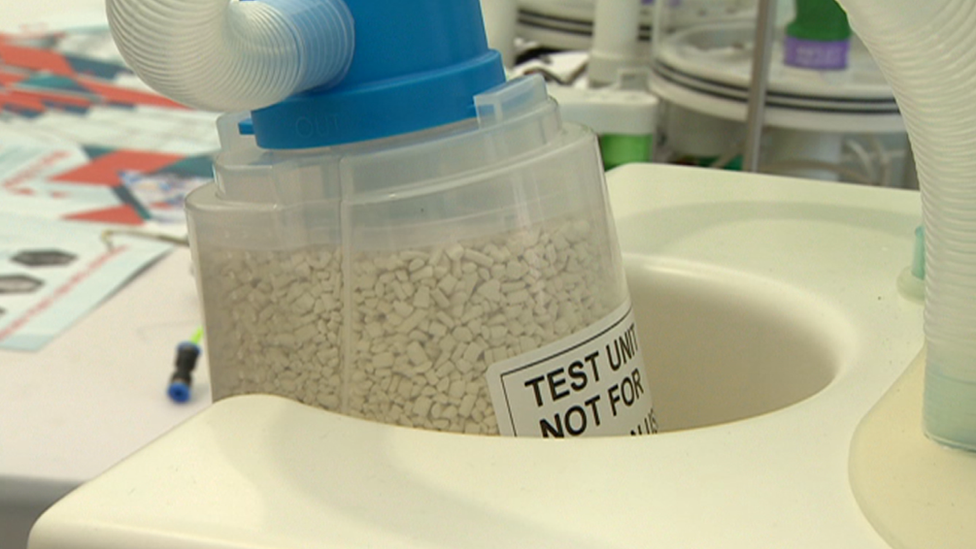
Lime soda canisters are a medical-grade solution to carbon dioxide
Another benefit of his device is its portability; due to its size it can easily be transported or used in otherwise inaccessible areas.
Mr Stanton said it could be used in care homes or the "middle of a desert.
"Its application for countries that don't have the sort of infrastructure we do is huge."
Professor Thomas Clutton-Brock MBE, Head of the Medical Devices Testing Evaluation Centre (MD-Tec) in Birmingham said of the device:
"It has the very real potential to allow acute CPAP (continuous positive airway pressure) to be delivered using oxygen concentrators, during transport and in countries where oxygen supplies are limited."
The machines are cheaper to produce too and cost about £3,300 each compared to the £12,000 cost of a typical VC70 ventilator used in intensive care units.
Mr Stanton has been exhibiting his invention at the Cheltenham Science Festival and was awarded £130,000 in development funding for his machines by Innovate UK and Millfield Medical Electronics.

Follow BBC West on Facebook, external, Twitter, external and Instagram, external. Send your story ideas to: bristol@bbc.co.uk , external
Related topics
- Published5 August 2021
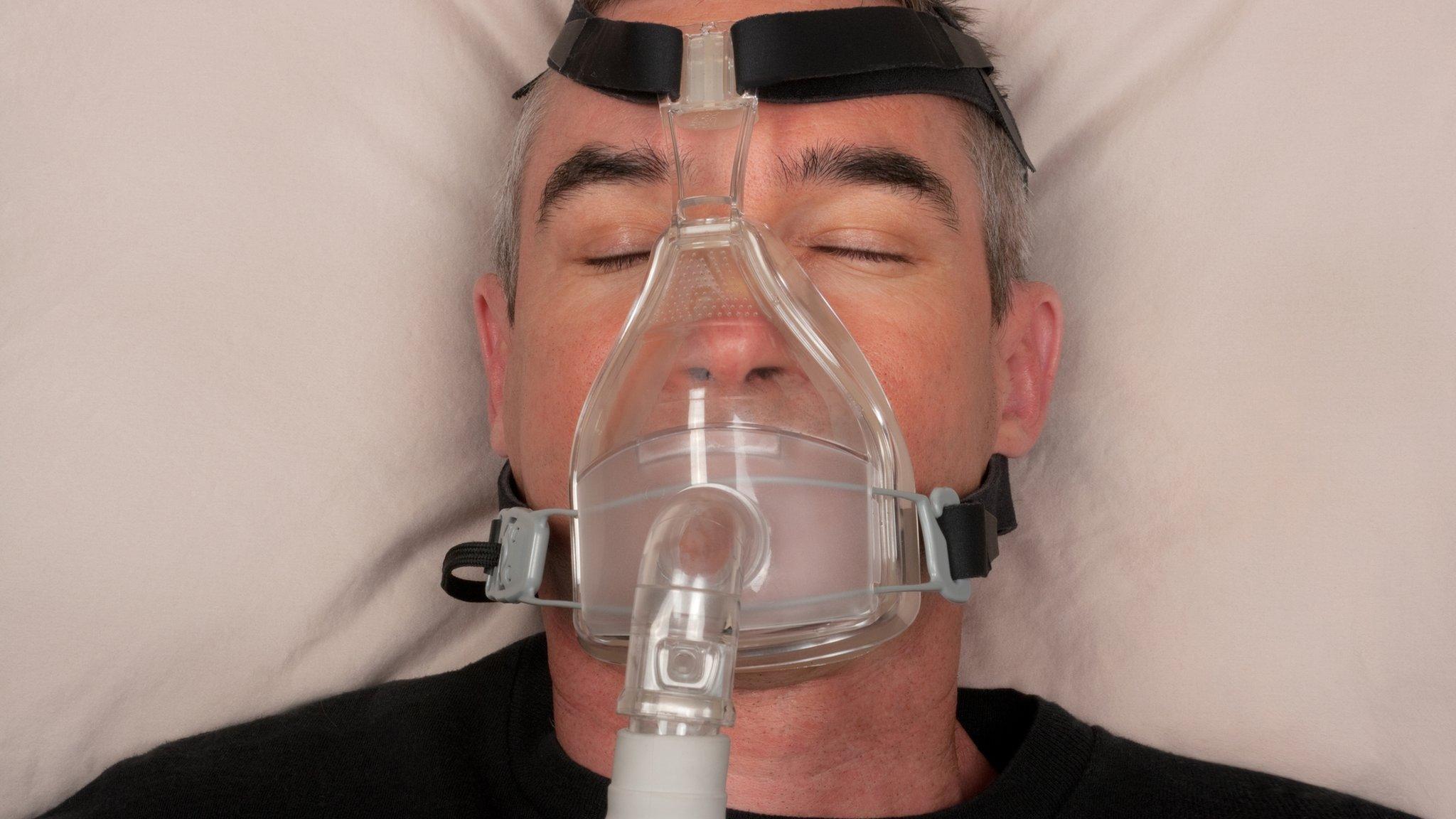
- Published9 August 2021
